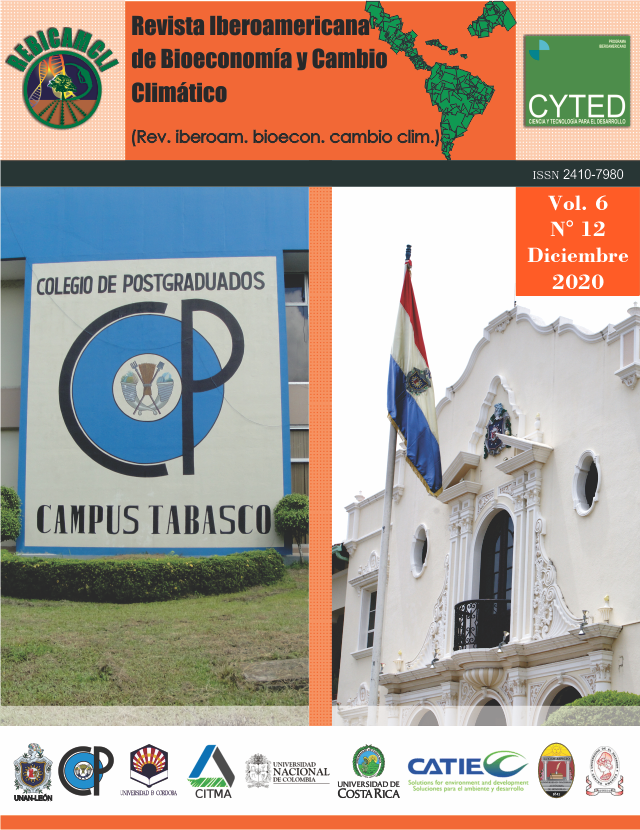Effect of bio-inputs on the population dynamics of Bemisia tabaci (GEN) Liriomyza spp, IN THE tomato crop (Solanum lycopersicum, L), San Isidro 2017-2018
DOI:
https://doi.org/10.5377/ribcc.v6i12.9932Keywords:
Bemisia tabaci, Liriomyza spp, Gliricidia sepium, Paecilomyces, Baeauveria bassiana, MetharhiziumAbstract
The objective of this research was to evaluate the effectiveness of five biological treatments on the management of the pests of Bemisia tabaci and Liriomyza spp. These were: Gliricidia sepium, Walpers, Paecilomyces fumosoroseus, Beauveria bassiana, Metarhizium anisopliae, Azadiracta indica. Juss and a conventional control for comparative purposes; were arranged in a completely random design on land of the Hugo Chávez Frías Technological Development Center, San Isidro, Nicaragua during the period of the second semester of 2017 and first semester of 2018. The variables studied were: Number of adults of Bemisia tabaci and Liriomyza spp by plant, incidence and severity of virosis, incidence and severity of damage caused by Liriomyza spp, commercial yield, partial budget, dominance analysis and marginal rate of return. The results indicated that the Beauveria bassiana and Metarhizium anisopliae treatments are more efficient in the control of whitefly adults; Paecilomyces fumosoroseus presented the lowest levels of Liriomyza spp (0.5 adults / plant), the control presented lower incidence levels than the treatments for both pests at 15 and 45 days after transplantation, also obtained the highest commercial yield of 31,477 kg / ha, followed by Beauveria bassiana. Being this treatment where the highest percentage of marginal return was obtained (474%).
Downloads
Published
How to Cite
Issue
Section
License
Copyright (c) 2020 Ibero-american JournalL of Bioeconomy and Climate Change e-ISSN 2410-7980

This work is licensed under a Creative Commons Attribution-NonCommercial-ShareAlike 4.0 International License.
Copyright © 2022 Rev. iberoam. bioecon. climate change Graduate School and UNAN-León, School of Agricultural and Veterinary Sciences / Department of Agroecology / Center for Research in Bioeconomy and Climate Change (CIByCC).






